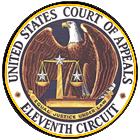 On December 26, 2012, the Eleventh Circuit issued a ruling that strengthens defenses to “protected activity” in FLSA retaliation actions. Miller v. Roche Surety & Casualty Co., Inc., No. 12-cv-10259 (11th Cir. Dec. 26, 2012) (unpublished). In particular, this decision shields employers in situations where employees make vague, unclear and/or ambiguous statements that they later attempt to characterize as protected activity in litigation.
On December 26, 2012, the Eleventh Circuit issued a ruling that strengthens defenses to “protected activity” in FLSA retaliation actions. Miller v. Roche Surety & Casualty Co., Inc., No. 12-cv-10259 (11th Cir. Dec. 26, 2012) (unpublished). In particular, this decision shields employers in situations where employees make vague, unclear and/or ambiguous statements that they later attempt to characterize as protected activity in litigation.
Background
Danielle Miller sued her former employer, Roche Surety & Casualty Co., Inc. (the Company), alleging she was discharged in violation of the FLSA anti-retaliation provision (29 U.S.C. 215(a)(3)) for her purported complaint that she was not provided a time and place to express breast milk (29 U.S.C. 215(a)(3) requires employers to provide breaks in private areas, other than bathrooms, for employees to express breast milk). More specifically, during trial before the U.S. District Court for the Middle District of Florida, Miller testified that she engaged in protected activity by: e-mailing her supervisor requesting a time and place to express breast milk; and e-mailing her friends and family about her need to express breast milk, asserting that the Company monitored her e-mails.
Yet, Miller admitted at trial that: she was free to take breaks to express breast milk as needed; she never was criticized for taking such a break; and she had access to a private place to express breast milk (nearby vacant offices were available to her as a private location), although she preferred to use her office. Moreover, Miller did not inform any supervisor that she would be expressing breast milk in her office, nor did she request a different location to do so. And she never showed the e-mails that she sent to her friends and family to anyone at the Company. Accordingly, the district court granted the Company judgment as a matter of law.
Eleventh Circuits Ruling
The Eleventh Circuit began its review by reiterating that filing … a complaint under the FLSA is statutorily protected activity, citing Kasten v. St. Gobain Performance Plastics Corp., ___ U.S. ___, 131 S.Ct. 1325, 1330-31 (2011). It then analyzed Millers argument that she filed a complaint within the meaning of Section 215(a)(3) when she e-mailed her supervisor requesting a time and place to express breast milk, as well as the Companys response that her e-mail does not amount to the filing of a complaint under the FLSA. The Eleventh Circuit explained that:
Although the filing of a complaint under 215(a)(3) need not be in the form of an official complaint or even be in writing, some degree of formality is required in order that the employer has fair notice that an employee is lodging a grievance. This notice requirement is essential because an employer who does not (or should not) know an employee has made a complaint could not discriminate because of that complaint. In keeping with this idea, the complaint must be sufficiently clear and detailed so that a reasonable employer, considering the context and content, can understand that an employee is asserting rights provided by the FLSA and calling for the protection of those rights.
(citations omitted; emphasis in original).
Applying this rationale to the evidentiary record, the Eleventh Circuit concluded that neither the context nor content of Millers e-mail put [the Company] on notice that she was lodging a grievance. It stressed that, before sending her e-mail to her supervisor, Miller had never requested or been denied a time or place to express breast milk, she was given breaks without question or criticism, she decided to express breast milk in her office without notifying any supervisors, and she did not complain or request a different location. In addition, the Eleventh Circuit rejected Millers argument that her e-mails to her friends and family were tantamount to filing a complaint under 215(a)(3), as she asserted that the Company monitored her e-mails. In this regard, it noted that she never showed the e-mails to anyone at the Company or told anyone at the Company that she believed the FLSA was violated. Likewise, it found that the content of her e-mails would not have alerted the Company to any alleged violation of the law. In sum, the Eleventh Circuit concluded that Millers e-mails would not have appraised a reasonable employer that a complaint had been filed and thus do not rise to the level of a complaint under 215(a)(3). Accordingly, the Eleventh Circuit affirmed the district courts judgment.
Implications
This decision is useful to employers saddled with retaliation litigation where the communication the employee points to as his or her protected activity is vague, ambiguous or indefinite, or where (as in this case) the communications simply cannot be construed as a “complaint.” When this decision is reviewed in connection with the Seventh Circuits November 30, 2012 decision in Kasten v. Saint-Gobain Performance Plastics Corp., No. 12-cv-1671, 2012 U.S. App. LEXIS 24624 (7th Cir. Nov. 30, 2012) (which was the subject of our recent post), employers now have some helpful guidance as to how to strategically analyze whether an employee engaged in protected activity under the FLSA.